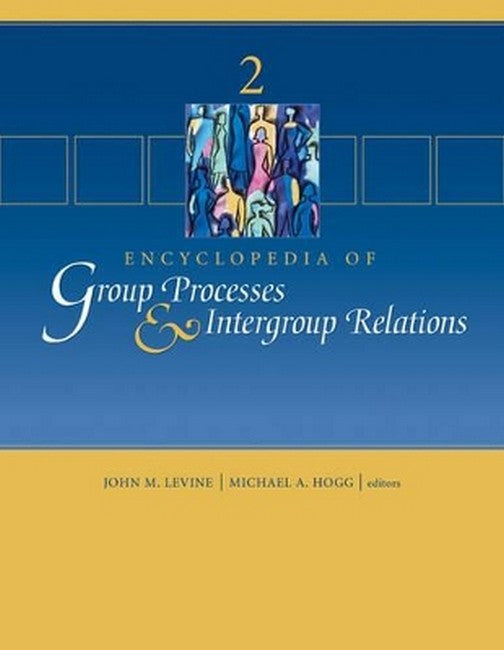John Levine is Professor of Psychology and Senior Scientist at the Learning Research and Development Center at the University of Pittsburgh. His research focuses on small group processes, and he has published many articles and book chapters on such topics as majority and minority influence, reaction to deviance, group socialization, and group loyalty. Professor Levine has served as Editor of the Journal of Experimental Social Psychology and Executive Committee Chair of the Society of Experimental Social Psychology. He currently serves on the editorial boards of Group Processes and Intergroup Relations, Journal of Experimental Social Psychology, Personality and Social Psychology Review, Journal of Personality and Social Psychology, New Review of Social Psychology, and European Review of Social Psychology. Professor Levine is a Fellow of the American Psychological Association and the American Psychological Society. Michael Hogg is Professor of Social Psychology at Claremont Graduate University. He is also an Honorary Professor of Psychology at the University of Kent and the University of Queensland. His research focuses on social identity processes within and between large and small groups, and he has published widely on topics including intergroup relations, group cohesion, leadership, group motivations, and conformity processes. Professor Hogg is co-editor of the journal Group Processes and Intergroup Relations, an associate editor of the Journal of Experimental Social Psychology, and Senior Consulting Editor for the SAGE Social Psychology Program. He is a fellow of the Society for Personality and Social Psychology, the Society for the Psychological Study of Social Issues, the Western Psychological Association, and the Academy of the Social Sciences in Australia.
Request Academic Copy
Please copy the ISBN for submitting review copy form
Description
"....A unique resource.... This well-written and understandable overview of the group processes field should be in every library that supports the study of social psychology, sociology, or business. Summing Up: Essential. Lower-level undergraduates through researchers/ faculty; general readers. ****" -- M. Sylvia "....This distinctive, well-researched, well-written, and understandable introduction to group theory is highly recommended for secondary, public, and academic libraries, particularly those supporting sociology and psychology programs."-LIBRARY JOURNAL (starred review) -- LIBRARY JOURNAL "....There are close to 300 articles making up these two volumes exploring the individual elements of group processes and intergroup relations, as well as where they merge. These articles cover broad categories ranging from theory and methodology to individual areas of interest... The diversity of the individual article coverage is impressive. The entries are steeped in scholarship and written by experts in the fields of social psychology, sociology, and organizational behavior.... The authors are successful in writing in an accessible style easily grasped by undergraduates and informed lay readers.... The Encyclopedia of Group Processes and Intergroup Relations is a title that has multi-disciplinary relevance. Undergraduates in fields as diverse as business, psychology, and sociology among others, could find themselves leafing through its pages." -- Tom Gilson * Against the Grain April 2010 *

